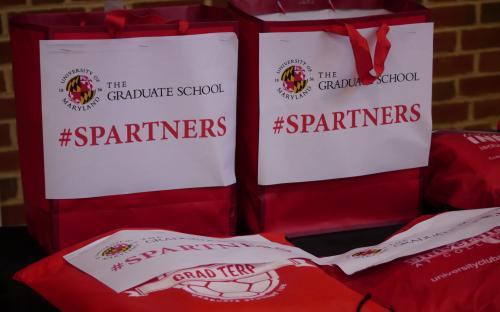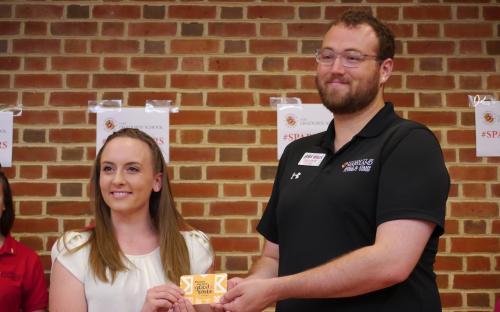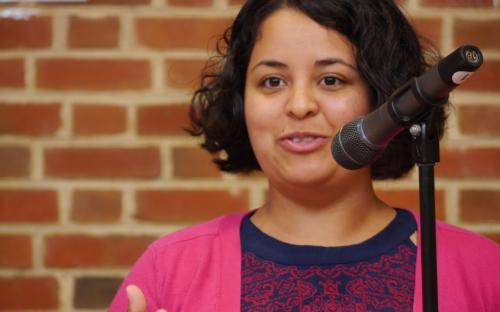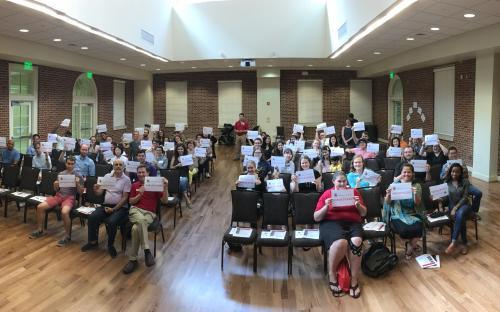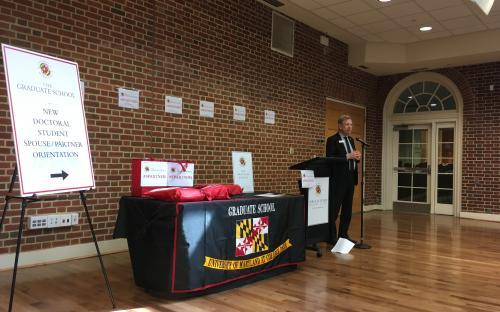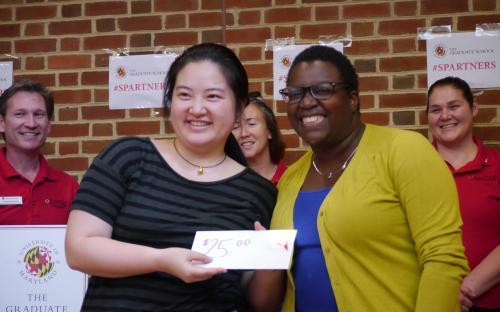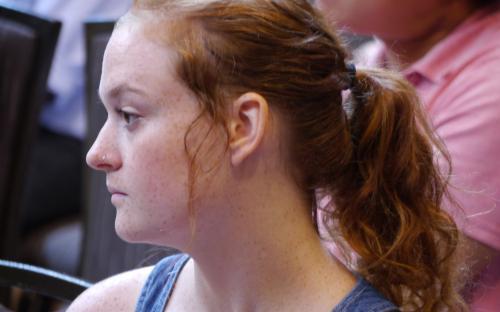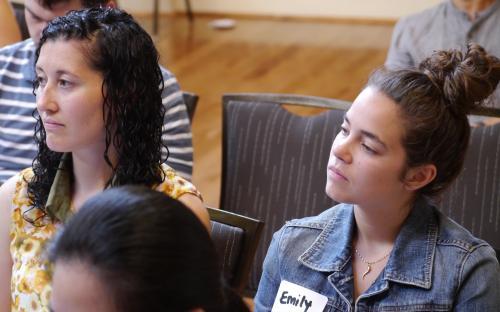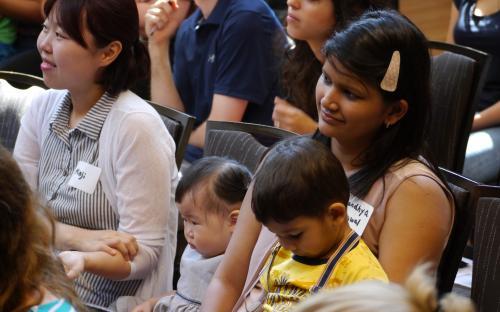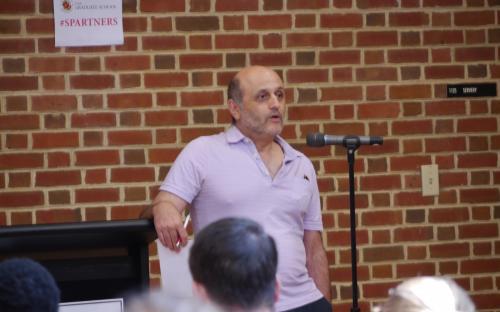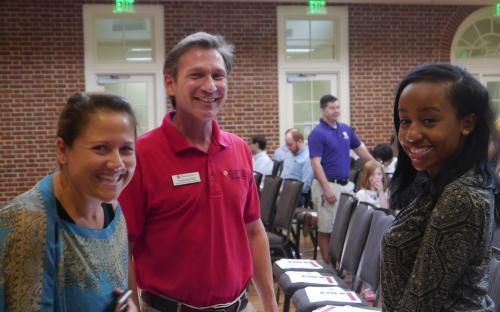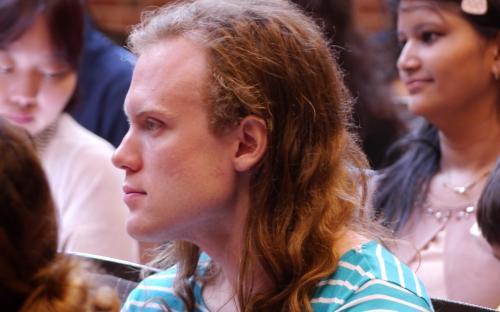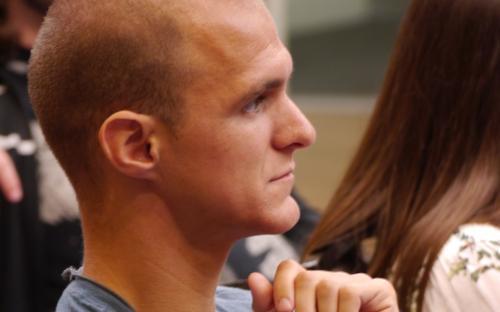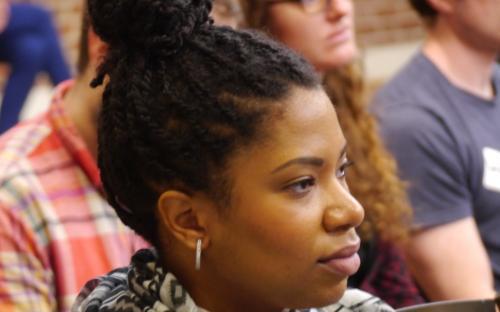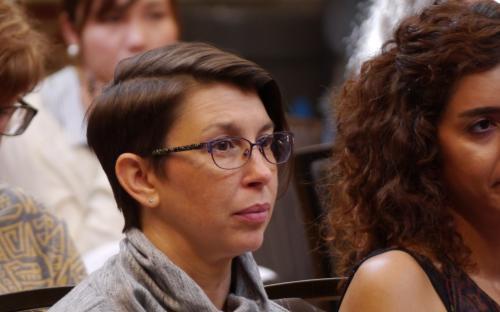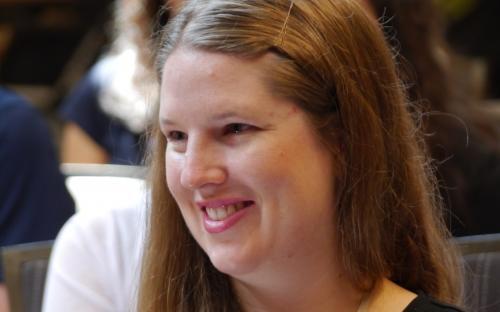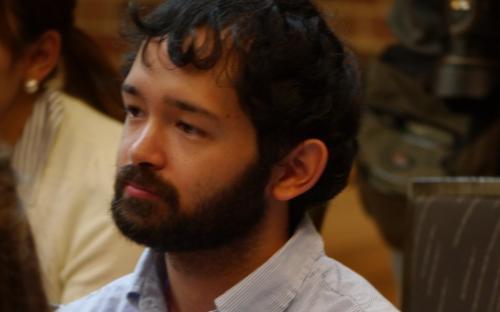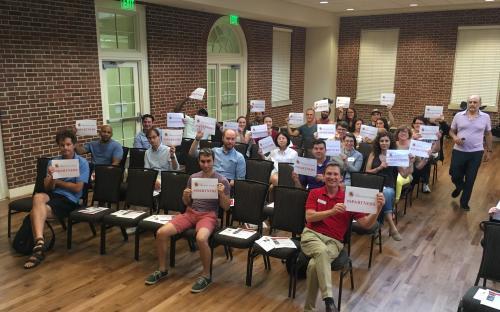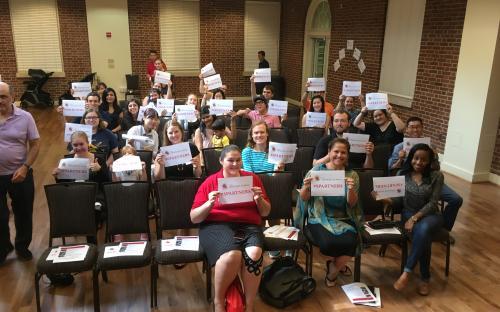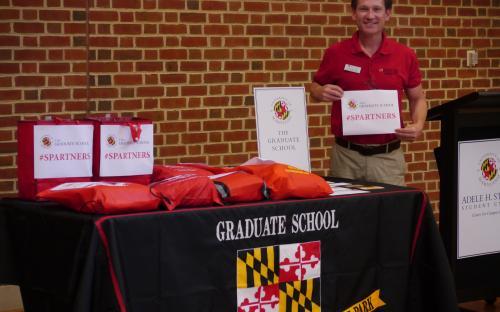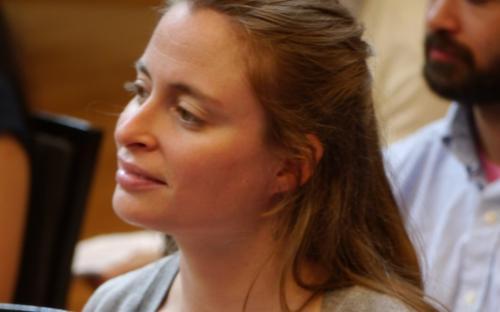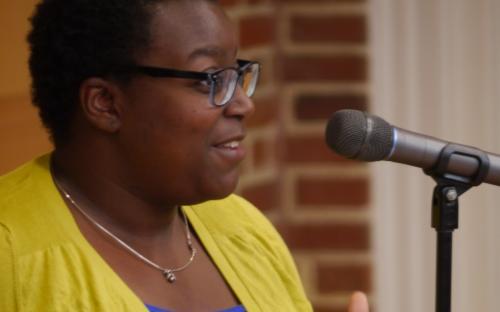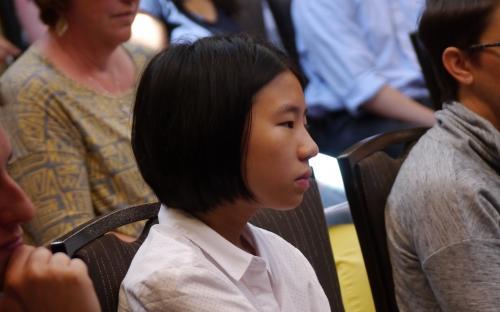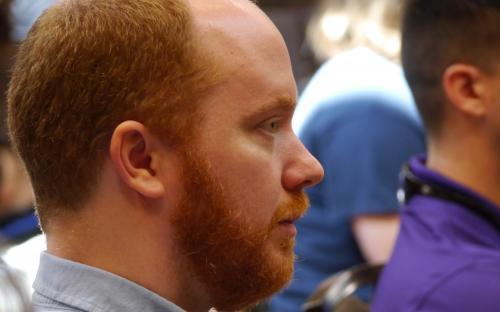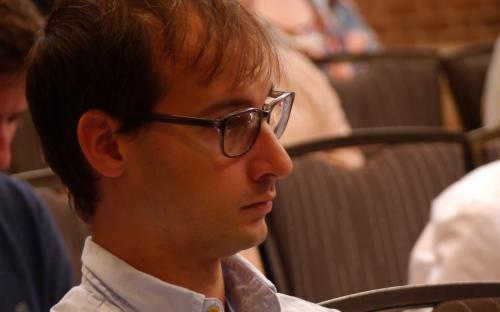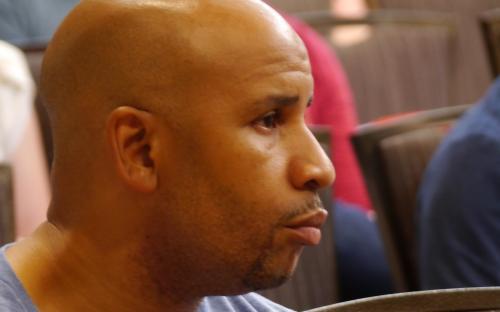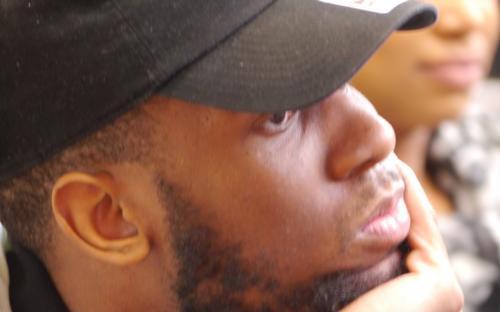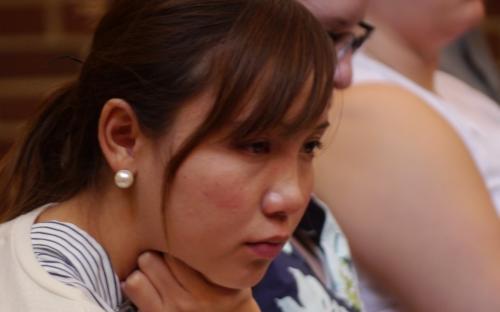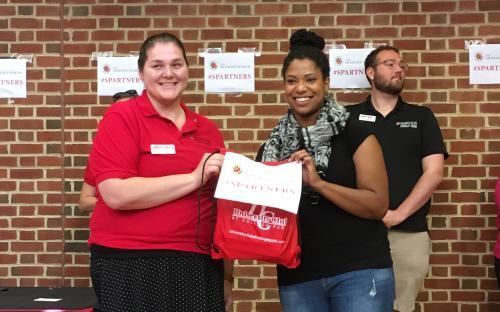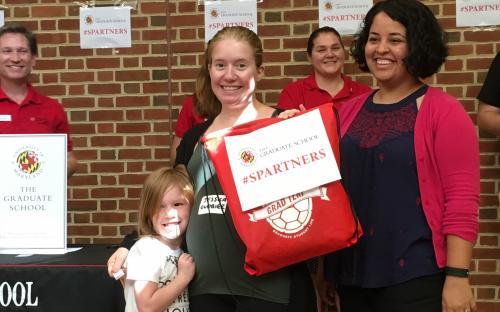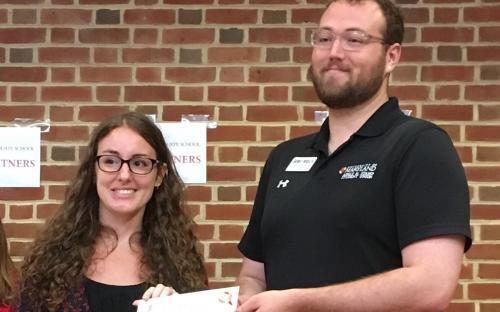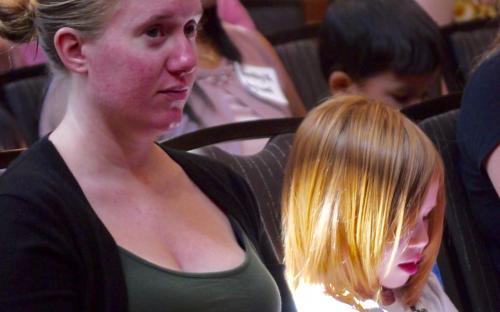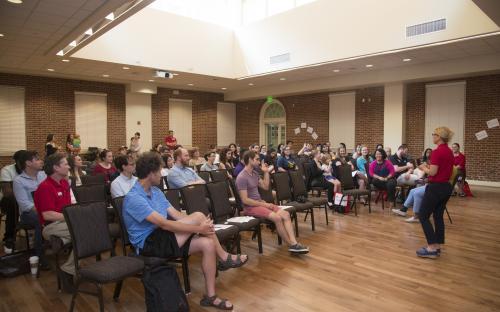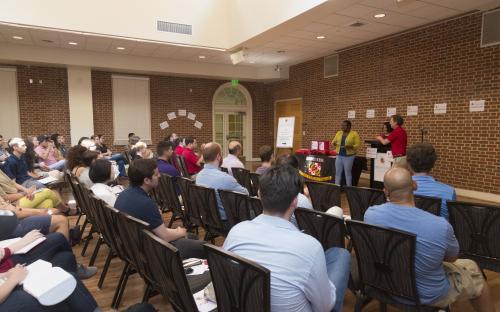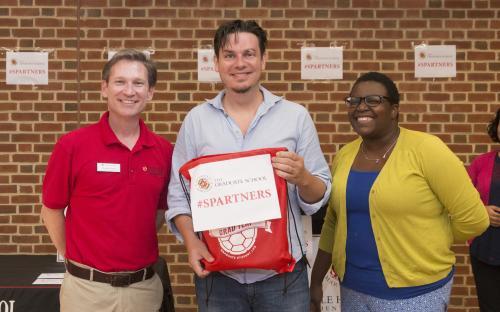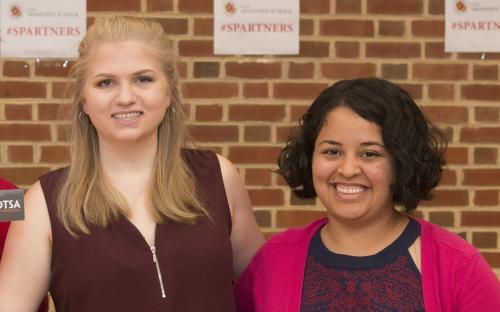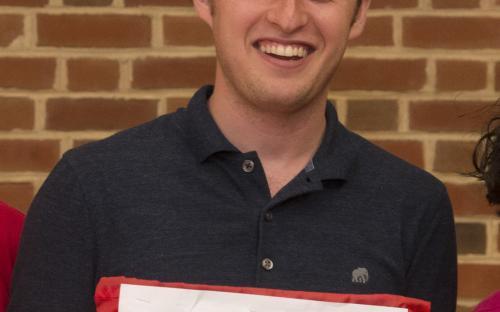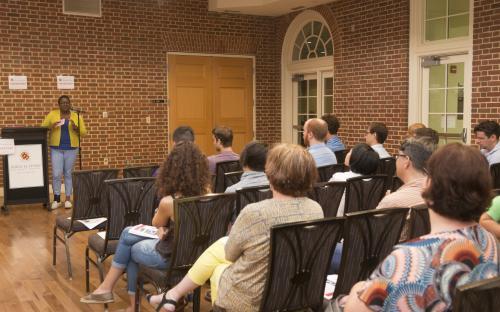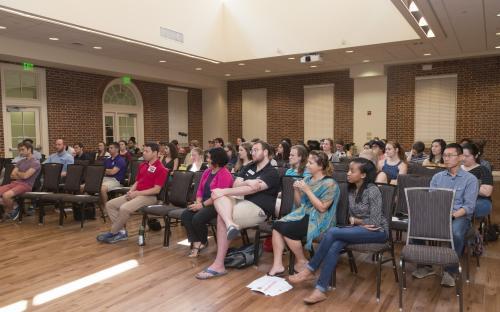By Anna De Cheke Qualls
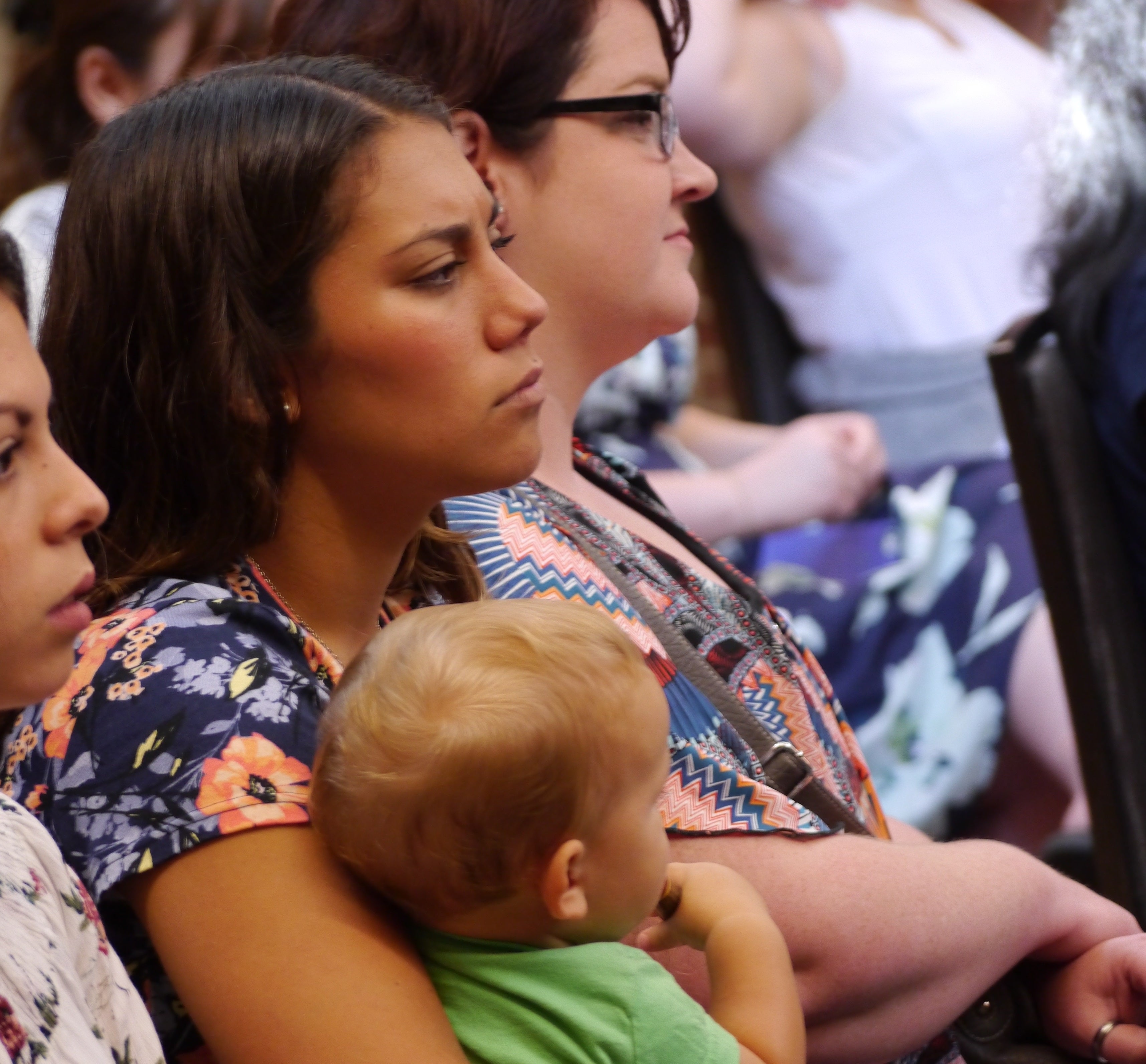 When we say 'graduate school is for families' it doesn’t mean your 7-year old runs the GC Mass Spec while you titrate. Or, that your partner writes your dissertation for you. What it means is that families can take an active role in collaborating with their graduate students through the challenges of graduate study, especially at the doctoral level.
When we say 'graduate school is for families' it doesn’t mean your 7-year old runs the GC Mass Spec while you titrate. Or, that your partner writes your dissertation for you. What it means is that families can take an active role in collaborating with their graduate students through the challenges of graduate study, especially at the doctoral level.
Over the past few years graduate schools, including Maryland’s Spartners Program, have made a concerted effort to reach this formerly underserved community. It is a reality that more and more graduate students come with spouses/partners or families and many are international. This is change. Research by Mary Ferreira in 2003 stipulated different attitudes about marriage. Her study signaled that graduate students were concerned both about the pace of academic progress and possible stigmatization once it is known they are married or have families.
But this isn’t necessarily the case now. In a paper published by Cornell University in 2006, Joseph Price examined graduation rates, time to degree, publication success, and initial job placement using data on 11,000 graduate students, in 100 programs over 20 years. Price found that "married men have better outcomes across every measure than single men. Married women do no worse than single women on any measure and actually have more publishing success and complete their degree in less time. The outcomes of cohabiting students generally fall between those of single and married students.” He also found that “the majority of students who are married at the start of graduate school have children before leaving."
So the take-away here is that today’s graduate population is more complex. Whether the result of incremental change or simply awareness of this population by graduate schools or both, a part of the graduate enterprise now has a family. In a Graduate School survey of over 3700 international graduate students in late 2016, of the 1616 respondents who indicated their relationship status, 11.7% reported having a married/having a domestic partner and 5.9% of respondents indicated being married/having a domestic partner with children.
And indeed, Spartners has been growing on this campus. "Supporting graduate families is an important component of our work at Maryland to support our doctoral students. I am particularly excited to work with Spartners because OGDI has access to an incredible network of resources, while also serving as an advocate," says Christopher Perez, Associate Director of the Office of Graduate Diversity and Inclusion (OGDI).
Each August during Orientation, OGDI runs a half-day session for spouses and partners. About 70-80 men and women, including some children, gather in a spacious room with strollers parked in periphery. They are treated to hearing from various support units and resources on campus, but the centerpiece of the event is always the testimonial of an active graduate student and his/her partner. This is a window into the joys, challenges and complexities of managing graduate life as a family. It is also an invitation to learn some practical life skills and support mechanisms in a safe and inclusive space.
Taryn Henderson listened carefully. As a nurse in Miami, she was hoping to relocate to an area where she could continue her career. "It was very important for me to be in an urban environment with public health resources, so I can continue my work with the community," says Henderson. She and her husband, and IRT Scholar Victor On-Sang, had many conversations before they chose Maryland and this location.
The personal stories at Spartners resonated with Henderson. "The couple in our session suggested small acts of love and kindness toward our partners, such as waking up early with them and spending that time with them. I think if these things are done by both parties, it mitigates a lot of the added stressors a relationship can add to an already hectic life of a doctoral student and a working partner. It's also important to always assess the situation when your partner is stressed and identify displaced frustration. However, I do think it is also important to take care of yourself and effectively communicate," she says.
Weilling Chen and her husband Wei-Ting Lu, of the Civil Engineering program, are in a slightly different situation. Chen works in Taiwan, and does not intend to move to this area until next year. She hopes her time away from Lu will give him a chance to find his own way. "He's an international student. I think allowing him the space to live alone and take care of things himself in the U.S. is what's going to help him. I think not helping him in this case may actually be helping him. Helping Wei-Ting to answer questions himself instead giving him answers is better. However, I do believe it is important to encourage him and tell him he can achieve anything he puts his mind to," she says.
Chen came to Spartners to get plugged into a network. And it’s understandable. While graduate school may be for families, it’s not always a rosy picture. They have common struggles finding appropriate housing and financing an education while raising a family. There are also work restrictions on international students and spouses. And then there is the universal challenge of caring for and schooling children. There is an acute need among graduate families, especially from abroad, to find affordable and quality daycare and effective schools. One of the first questions that Sandhya Agrawal asked after the Spartners session was about finding good, local childcare.
These issues are very real. The Graduate School’s Spartners program hopes, at best, to create an awareness of common concerns, provide resources and advocacy when possible. Much work has been done and much that lies ahead. For now, OGDI will continue to listen and offer programming throughout the year to strengthen this vital community. But "it is important that families continue to show up and participate in this community. And not just to help our spouses or partners succeed, but so that we, as spouses and partners, can also thrive in this broader academic environment," says Sara Lerma Jones.
